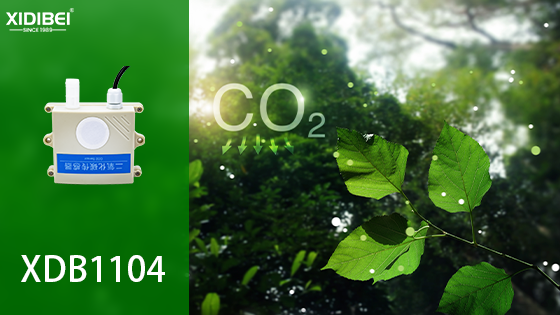
In recent years, climate change has shifted from being a forecasted scientific concern to a palpable reality. Frequent hurricanes, raging wildfires, and rising sea levels are stark reminders that the Earth is facing an unprecedented crisis. To confront this global challenge, nearly 200 countries came together in 2015 under the Paris Agreement, pledging to limit global temperature rise to below 2°C, with an aspirational goal of 1.5°C. This landmark accord marked a crucial milestone in global efforts to combat climate change.
However, in 2025, former U.S. President Donald Trump once again withdrew the United States from the Paris Agreement during his return to office. This decision reignited intense international debate. Supporters argued that the U.S. should prioritize its domestic economy and job creation, while critics warned of the far-reaching negative implications for global climate governance. Despite this setback, climate action on a global scale has not come to a halt. Governments, businesses, and technological organizations worldwide continue to accelerate green transitions and explore sustainable development pathways.

The Real Challenges of Climate Change
The impacts of climate change permeate every aspect of daily life. From steadily rising temperatures to more frequent extreme weather events, our planet is undergoing significant environmental transformations. These changes not only disrupt natural ecosystems but also pose severe threats to agricultural productivity, industrial development, and the stability of urban infrastructure.
Farmlands are increasingly plagued by droughts or floods caused by erratic climate patterns, jeopardizing global food security. In urban areas, extreme heat waves strain energy systems, increasing electricity demand and creating pressure on infrastructure. Meanwhile, rising sea levels threaten coastal populations and economic activities, leaving many cities apprehensive about the future costs of relocation and adaptation.
Moreover, climate change exacerbates existing inequalities. Developing nations, lacking adequate resources to cope with climate crises, are often the first to bear the brunt of its effects. Faced with such dire realities, we require more than warnings—we need actionable solutions.
Technological and Policy Pathways to Address Climate Change
In addressing the challenges of climate change, technological innovation and policy support serve as indispensable dual drivers. The rapid advancement of renewable energy provides hope for global emissions reduction. Technologies like wind and solar power are enabling more countries to move away from fossil fuels and transition toward a sustainable energy structure. However, energy transformation alone is insufficient. More precise tools for monitoring and managing carbon emissions are essential to achieving global reduction targets.
Carbon markets have emerged as a key initiative in this context. By quantifying and regulating carbon emissions, businesses can optimize their practices through market-based mechanisms while incentivizing the adoption of green technologies. Yet, the successful implementation of such policies hinges on the availability of accurate and reliable data.
This is where sensor technology plays a pivotal role. From real-time monitoring of carbon dioxide levels to tracking critical environmental parameters such as temperature, humidity, and water quality, sensors provide the data necessary for policymakers and businesses to make informed decisions. Moreover, the integration of sensor networks with intelligent systems has enabled real-time tracking and management of emissions. For instance, combining the Internet of Things (IoT) with sensor technologies creates efficient environmental monitoring networks, offering scientific foundations for policy and industrial decisions.
These combined technological and policy efforts bring us closer to achieving carbon neutrality. However, this remains a global "relay race" where each stakeholder—governments, businesses, and individuals—plays a vital role.
The Role of Sensors in Climate Governance
Sensor technology acts as the "eyes" of climate governance, delivering real-time monitoring and precise feedback to support global efforts against climate change. In this process, sensors serve not only as "recorders" but also as "analysts" and "problem solvers."
Firstly, sensors enable precise monitoring by measuring greenhouse gas concentrations like carbon dioxide and methane, as well as key environmental factors such as water resources, soil moisture, and air quality. This data forms the foundation for evaluating regional carbon emissions and assessing the effectiveness of climate policies. For example, in industrial settings, high-sensitivity gas sensors can track carbon emissions in real-time and promptly identify excessive discharges.
Secondly, sensors provide real-time feedback that enhances decision-making across various sectors. In smart agriculture systems, soil moisture sensors optimize irrigation, reducing water waste while increasing crop yields. In smart buildings, temperature and humidity sensors dynamically adjust heating and cooling systems to achieve energy efficiency and emission reductions.
Furthermore, the integration of sensor networks with IoT systems allows industries to create comprehensive environmental monitoring ecosystems. Through big data analysis, information collected by sensors contributes to global climate modeling, enabling more accurate predictions of climate change trends. This systematic capability significantly enhances the efficiency of climate change responses.
More importantly, sensors extend beyond climate governance to facilitate the smart transformation of industries, agriculture, and cities. A simple sensor often serves as a bridge connecting traditional industries with an intelligent future.
Insights from the Azerbaijan Climate Summit
In November 2024, the Azerbaijan Climate Summit (COP29) in Baku brought together global leaders to discuss pressing climate issues and formulate actionable strategies. The summit’s outcomes were encapsulated in the "Baku Climate Solidarity Pact," which included significant milestones for post-2025 climate finance and implementation frameworks.
One major outcome was the commitment by developed countries to provide $300 billion annually by 2035, along with $1.3 trillion in climate financing each year to support climate actions in developing nations. The summit also finalized the operational rules for the Paris Agreement’s Article 6, establishing a credible and transparent international carbon market mechanism.
Another highlight was the formal establishment of the Baku COP Presidency’s Climate and Health Continuity Alliance, aimed at promoting synergy between climate action and public health. This initiative, supported by the World Health Organization, emphasized integrating health considerations into climate agendas.
Additionally, the summit endorsed the "Green Digital Action Declaration," advocating for the use of digital technologies to accelerate climate action while minimizing the environmental footprint of tech operations. These discussions and agreements at the summit have infused new momentum and direction into global efforts to combat climate change.
Global Collaboration and Future Outlook
Climate change is a borderless crisis that requires effective global collaboration. Whether through the Paris Agreement or individual nations' carbon neutrality targets, these initiatives highlight the collective determination to address climate change. However, promises alone are insufficient. Genuine breakthroughs demand the convergence of policy support, technological innovation, and societal participation.
Technology is the driving force behind transformative progress. From the rise of renewable energy to the widespread application of sensor technology, advancements in science are equipping us with more efficient and precise tools to tackle climate challenges. Looking ahead, the integration of artificial intelligence with IoT systems will further enhance environmental monitoring and management, providing governments, businesses, and individuals with deeper insights into the complex impacts of climate change. Additionally, blockchain technology may offer greater transparency and reliability in carbon trading systems.
But addressing climate change is not solely the responsibility of governments and tech companies. Every individual has a role to play in this fight. From reducing personal carbon footprints to supporting environmental policies, small actions can collectively contribute to the sustainable development of our planet.
Looking forward, sensor technology will remain a cornerstone of climate governance. It is not just a recorder of data but a key enabler of global environmental action. At XIDIBEI, we are committed to driving innovation in sensor technology to support climate governance and sustainable development. We firmly believe that through global collaboration and technology-driven efforts, we can achieve a greener, smarter future.
About XIDIBEI
XIDIBEI is a professional pressure sensor manufacturer dedicated to providing high-quality and reliable sensor products to customers worldwide. With extensive experience in the automotive, industrial, and energy sectors, we continuously innovate to help various industries achieve smarter and more digital futures. XIDIBEI’s products are sold globally and have earned widespread acclaim from customers. We uphold the philosophy of 'technology first, service excellence' and are committed to providing superior service to our global clients.
For more information, visit our website: http://www.xdbsensor.com or contact us via email at info@xdbsensor.com.
Post time: Jan-23-2025

